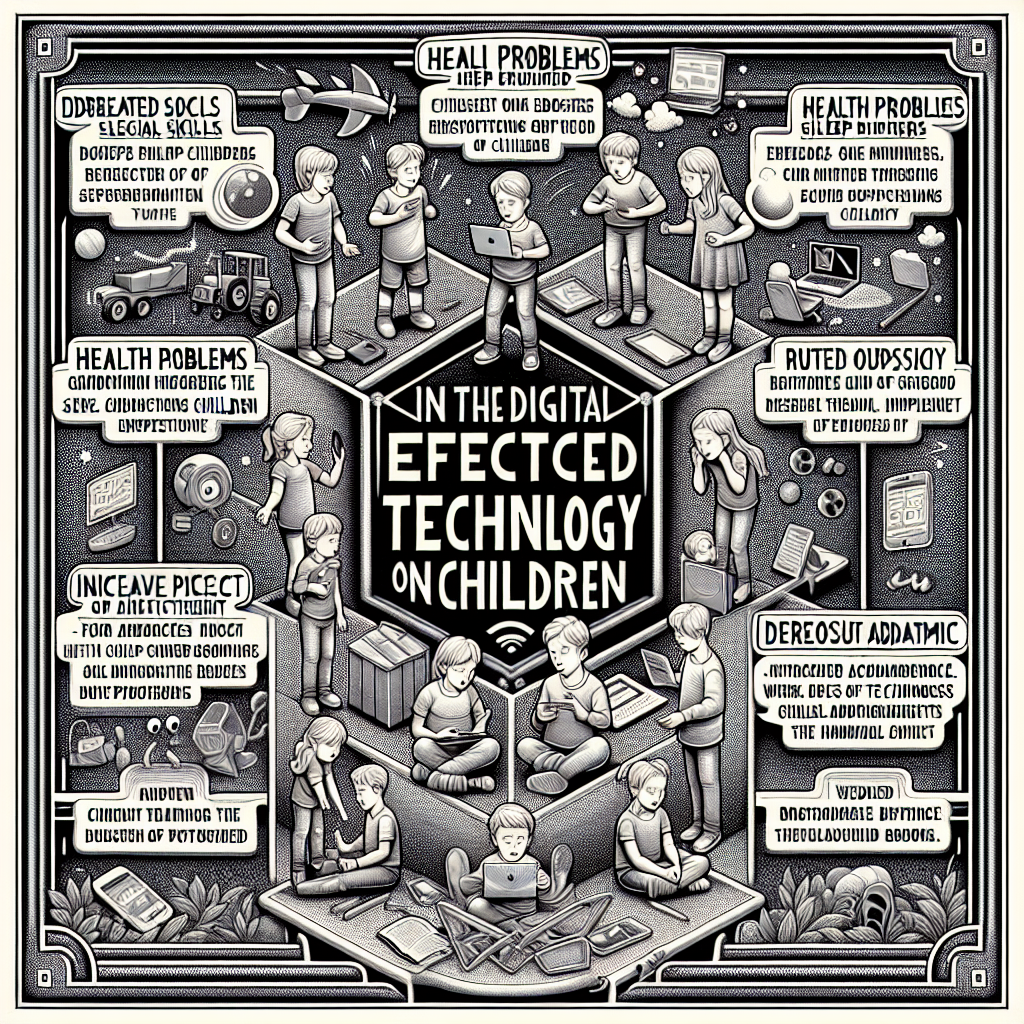Child Development: A Complete Guide to the Essential Stages
Introduction
In today's digital age, technology has become an integral part of our daily lives. Its effects on child development cannot be ignored. Parents face an increasing challenge in balancing the benefits of technology with its potential harms. We will explore the 8 major negative effects of technology on children and ways we can mitigate this impact.
Addiction to Screens and Electronic Devices
It has become common to see even very young children spending hours in front of screens, be it televisions, tablets or smartphones. This oversaturation can lead to addiction, meaning that children can develop a compulsive need to use electronic devices. The effects of this addiction can manifest in irritability, behavioral problems and even sleep disturbances.
Impact on Social Development
Excessive use of technology can have a negative impact on children's social development. Interacting with electronic devices limits opportunities to interact face-to-face with other people, affecting social skills and the ability to read others' emotions. It can also lead to social isolation and difficulty establishing real relationships.
Effects on Physical Health
Time spent in front of screens is wasted time when the child could be physically active. This can contribute to problems such as childhood obesity, poor posture and vision problems. It is essential to encourage physical activities as part of the child's daily routine to counteract these effects.
Academic problems
Constant screen time can also affect academic performance. Children may have difficulty concentrating or be more likely to score lower on school tests. This is because the distractions and multitasking induced by multiple devices can diminish a child's ability to focus on single tasks, making learning more difficult.
Exposure to Inappropriate Content
The Internet is a vast and uncharted territory where children can easily come into contact with dangerous or inappropriate content. We are responsible for monitoring and controlling the type of content our children are exposed to and giving them the tools they need to navigate safely.
Effects on Sleep
Electronic devices emit blue light, which can interfere with the production of melatonin, the sleep hormone. Prolonged use before bedtime can affect the quality and duration of children's sleep, which is essential for their physical and cognitive development.
Reduced Ability to Think Critically and Creatively
Information overload and easy access to answers can diminish children's ability to think critically and creatively. Instead of finding solutions and exploring new ideas, they become addicted to ready-made information and easily accessible entertainment.
Ineffective Time Management
With so many apps and games designed to capture attention for long periods of time, kids can develop bad time management habits. This can lead to procrastination, lack of concentration, and the inability to complete tasks.
Conclusion
The technology itself is not bad. It's how we use it and the amount of time we spend on it that can have harmful effects. Our role as parents is to set healthy limits, encourage diverse activities, and educate our children about responsible technology use. By encouraging balance and supervising screen time, we can help ensure the healthy and balanced development of our children.














































































































































